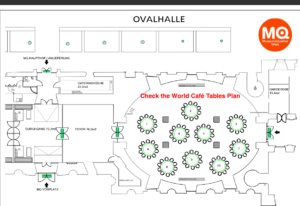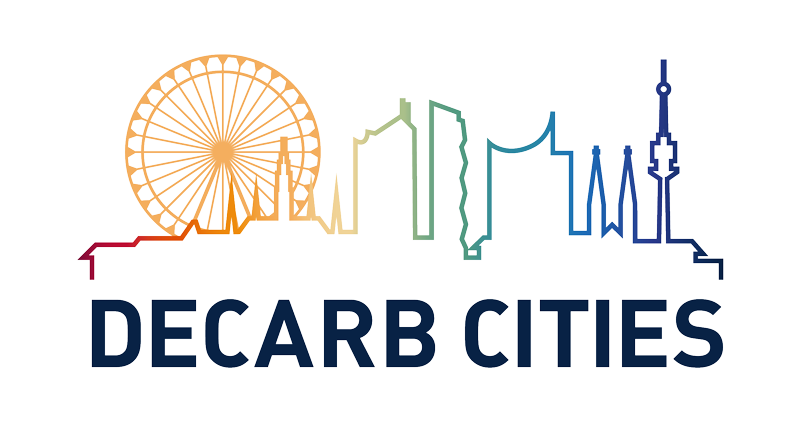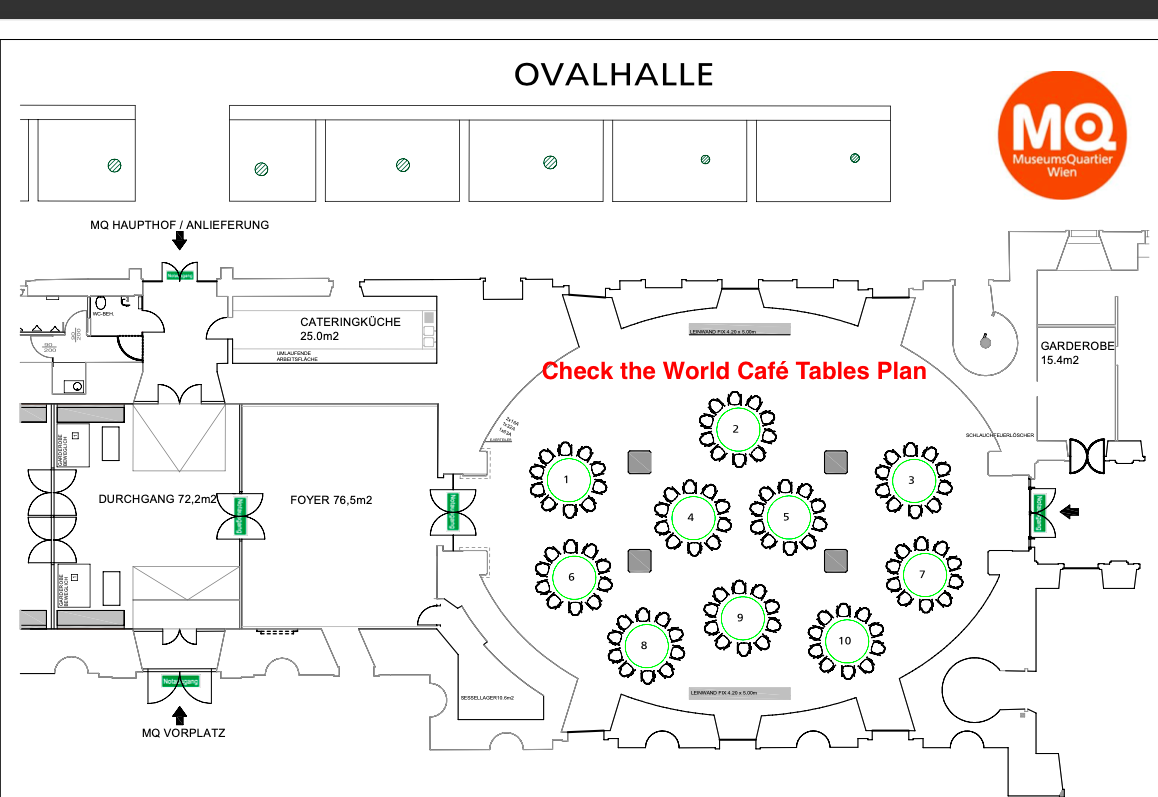Roundtable discussions on existing tools/best practices for local players to design and roll out their strategy
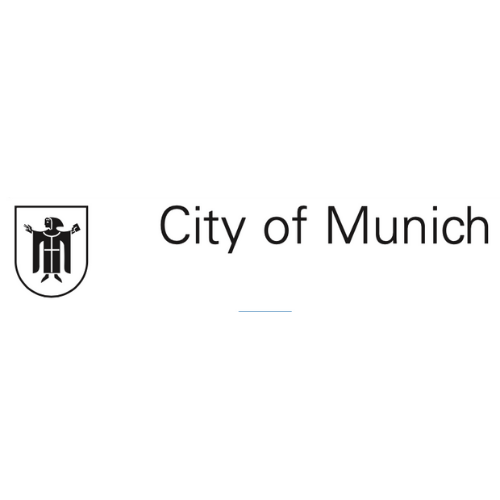
Munich is aiming at being climate-neutral in 2035. To decarbonise buildings, the city is developing a heat vision based on energy efficiency, district heating decarbonisation, mainly thanks to geothermal energy, and heat pump development. A set of integrated measures need to be implemented at quarter level. Discover challenges and solutions for decarbonisation of heat supply. Munich is part of the EU-funded DecarbCityPipes 2050 project.
Speaker:
Christoph Schmidt, urban planner and energy analyst, Department of Urban Planning, City of München
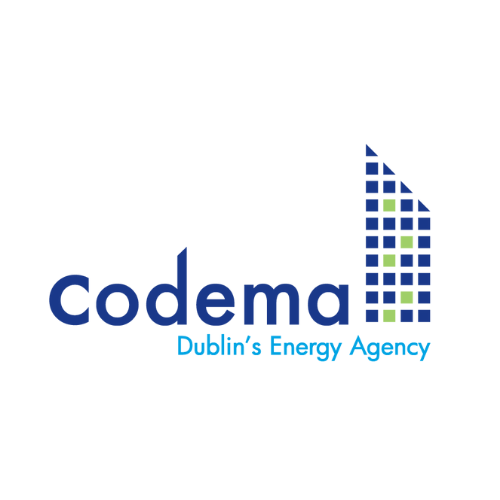
The South City of Dublin and Codema has developed the 1st large-scale Irish district heating system, based on waste heat recovery from a data centre. It led to the creation of the first not-for-profit public utility in the country. Dublin is working to use the lessons-learnt to multiply this successful project across the city. Codema is part of the EU-funded DecarbCityPipes 2050 project.
Speaker:
John O’Shea, Energy Systems Analyst / Heat & Electricity Lead, Codema – Dublin’s Energy Agency
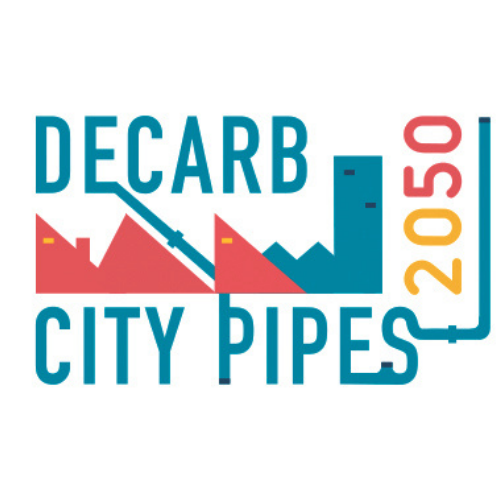
Rotterdam and Bilbao are both cities with ambitious decarbonisation targets, and are both defining the best technic, economic and social pathways to decarbonise their districts, using different modelling and planning tools. While in Rotterdam many solutions might be suitable according to the districts, in Bilbao electrification might be the main solution across the city. Discover the vision and the challenges linked to each context. The 1st round of the world café will be dedicated to Rotterdam case, and the second to Bilbao. Both cities are part of the EU-funded DecarbCityPipes 2050 project.
Speakers:
- WHAT Maps: how to define socio-economic clean decarbonised heat solutions for different districts? Presentation by Marie-Emilie Ingen Housz, Heat Advisor, City of Rotterdam (1st round)
- Are fully-electrified buildings the solution for Bilbao buildings’ decarbonisation? Presentation by Patxi Hernandez Iñarra, Researcher, Tecnalia and Jon Gonzalez Mancisidor, Energy Projects Technician, City of Bilbao (tbc) (2nd round)
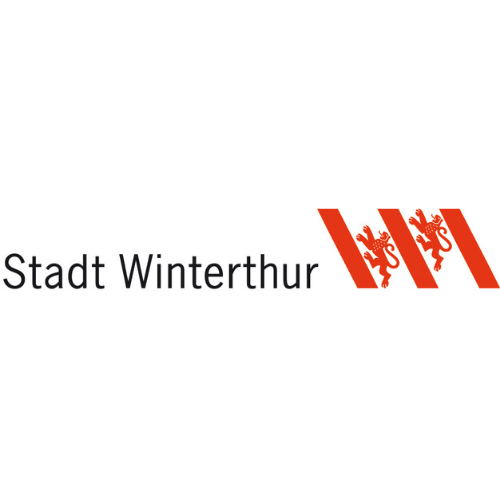
Winterthur is working to phase-out gas connections from existing buildings. To achieve the transition, the city is articulating visioning, stakeholders’ engagement, support to households, DHC development, and the articulation of the local and cantonal legal framework. Currently around 2/3 of households replacing their heating systems every year choose low carbon and renewable-based solutions. The goal is to achieve 100% in the near future. Winterthur is part of the EU-funded DecarbCityPipes 2050 project.
Speaker:
Heinz Wiher, Leader Energy and Technique, Energy Department, City of Winterthur and Rita Gnehm, Co-Leader Energy, Climate and Mobility, Planar
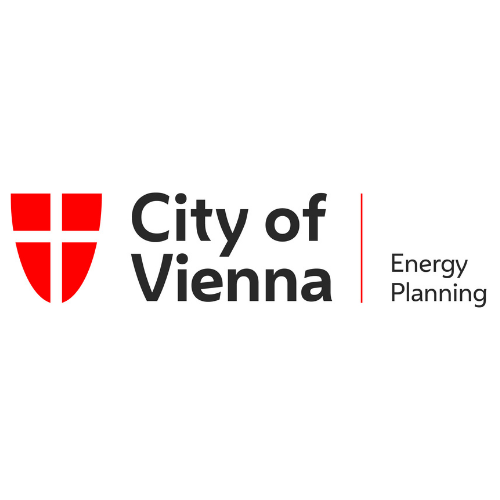
Energy is increasingly becoming an integrated part of urban planning in Vienna. In 2020, the new city government declared its ambition to reach decarbonisation by 2040, which lead to acceleration of activities related to energy efficiency, transition and renewables. The energy demand for heating and cooling of buildings has the highest share of total energy consumption in the city. Therefore, the necessity for decarbonising the buildings sector becomes evident. In the World Café Session we would like to present how to set up a Heating and Cooling Plan for a decarbonized Building Sector in Vienna.
Speaker:
DI Andrea Kinsperger, Energy planning department – City of Vienna

So far, positive energy districts and neighbourhoods (PEDs) have been predominantly researched from a technological and energy perspective, often with a focus on electricity and related to new buildings. In Cities4PEDs, the cities of Brussels, Vienna and Stockholm collaborate with experts from research, innovation and citizen participation and investigate how cities can adapt and use their planning and implementation instruments so that urban development results in neighbourhoods that produce more energy than they consume.
In this World Cafe session we will present the evolvement of Viennese instruments for collective renovation of the built environment. We would like to discuss with you different approaches to accelerate the renovation of existing districts. How do we move from retrofitting singular houses one by one to a collective approach?
Speaker:
DI Petra Schöfmann, MSc – Urban Innovation Vienna
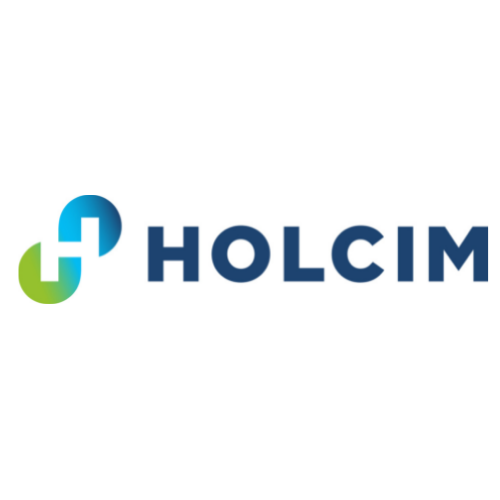
What if you could heat and cool buildings only with renewable energy and by using the thermal properties of concrete? Buildings globally are responsible for 37% of the global CO2 emissions where about three quarters originate from heating, cooling and lighting systems. The thermal concrete activation (TCA) functionality can reduce this footprint to a minimum.
Built on the thermal properties of concrete, TCA enables the heating and cooling of buildings with the sole use of renewable energy powered by heat pumps. The system pre-charges buildings like batteries with energy that can be stored and released to heat and cool buildings when needed, at zero cost. So, times without sun and wind can be bridged.
Energy efficient, environmentally friendly and cheap, the thermal concrete activation in combination with renewable energy, smart design and low carbon concrete EcoPact, produced by Holcim, can play a major role in the decarbonization of cities and effectively accelerate the phase-out of fossil fuels in the built environment.
Speakers:
- Berthold Kren, CEO Lafarge Austria
- Sebastian Spaun, Managing Director of Association of the Austrian Cement Industry

Facing unprecedented climate change, we must all challenge what’s possible to make our world sustainable. Trane Technologies (NYSE:TT) is a global climate innovator. Its strategic brands Trane® and Thermo King® bring sustainable, efficient climate solutions to buildings, homes and transportation. The team will showcase customer stories of how buildings in Europe are today being decarbonized in our cities with climate friendly heating and cooling solutions, and they will share their call to action for companies to join them on their mission of boldly challenging what is possible for a sustainable world. Sustainability isn’t a buzzword at Trane Technologies – it’s core to its strategy. In 2019, the company launched its Gigaton Challenge to reduce customers’ carbon emissions by a billion metric tons – the first in the manufacturing industry to have its targets verified by the Science-Based Targets Initiative and one of only 47 companies to be verified twice. Trane Technologies has also set a goal to reduce GHG emissions by another 50%. The 2030 commitments also include achieving carbon neutral operations across the company’s global footprint, a 10% absolute energy reduction, zero waste to landfills and net positive water use.
Considering that today most European buildings use gas or oil boilers for heating, we at Trane, are committed to using renewable resources available in nature as part of our contribution to mitigate climate change and reduce carbon footprint. Over decades, we’ve partnered with building owners and facility managers to understand their challenges and explore exciting opportunities, such as repurposing untapped thermal energy within buildings. Now, by leveraging new technologies and challenging our industry’s way of thinking, by pushing the boundaries of what is possible, we’ve designed climate-friendly HVAC solutions to fully satisfy any possible combination of cooling and heating needs. Trane heating. Naturally.
- Case study 1: Decarbonization of food manufacturing
- Case Study 2: Carbon-neutral heating with Vienna Energy
Speaker and panelists:
- Nicolas Bau, District Leader, Trane Commercial HVAC EMEA, Trane Technologies
- Matthias Eigner, Sales Equipment Leader, Trane Commercial HVAC EMEA, Trane Technologies
- Geraldine Velner, Communications Leader EMEA, Trane Technologies
- Valerio Forconi, Director Government Affairs and Public Relations EMEA, Trane Technologies
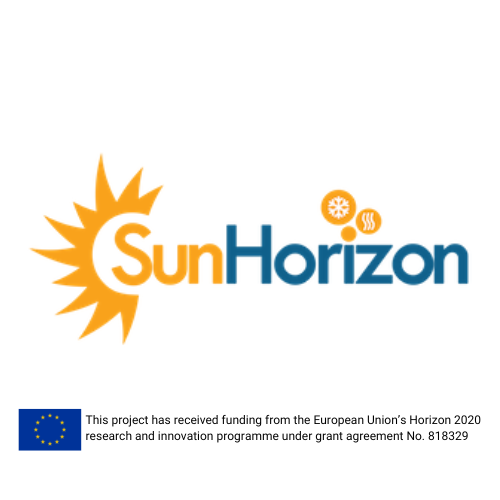
SunHorizon is an H2020 project and wants to unlock the potential of integrating the most promising renewable-based heating and cooling solutions (solar and heat pumps) for all EU climates towards their mutual cost-effectiveness and performance increase.
The project aims to demonstrate up to TRL 7 innovative and reliable Heat Pump solutions (thermal compression, adsorption, reversible) that acting properly coupled and managed with advanced solar panels (PV, Hybrid, thermal) can provide heating and cooling to residential and tertiary building with lower emissions, energy bills and fossil fuel dependency.
Speaker:
Federica Fuligni, Business Development Manager, Innovation for Energy & Mobility, RINA Consulting S.p.A.
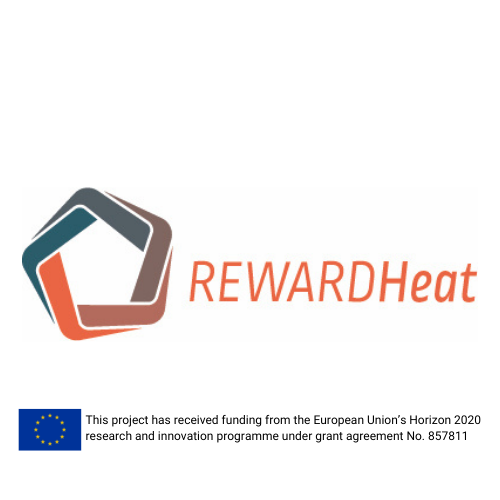
REWARDHeat is co-financed by the European Commission and aims to demonstrate a new generation of low-temperature district heating and cooling networks that will be able to recover renewable and waste heat, available at low temperature. These networks will be able to increase production and distribution efficiency by recovering, renewable and waste heat available at low temperatures.
By focusing on the exploitation of energy sources in urban environments, the replicability and upscaling potential of the decentralized solutions will be maximised. These solutions aim to promote a cost-efficient and technically viable decarbonisation of the European DHC sector.
Speaker:
Elena Ricci, EU Projects Officer, EHPA
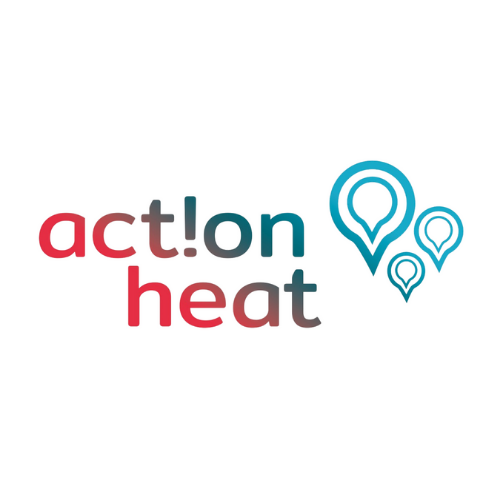
Act!onHeat will accelerate the use of strategic heating and cooling (H&C) planning in cities and regions throughout Europe. The project will identify the success factors of strong and efficient existing H&C plans and develop a workflow for strategic H&C planning based on the well-established open source tools Hotmaps and THERMOS.
Act!onHeat is rolling out a Support Facility that will help 120 municipalities to start, continue or improve their strategic H&C planning, as well as develop 30 pre-feasibility studies and 15 financial analyses.
Speakers:
- Marcus Hummel, Senior Researcher, e-think
- Julen Imana Sobrino, Officer, ICLEI Europe
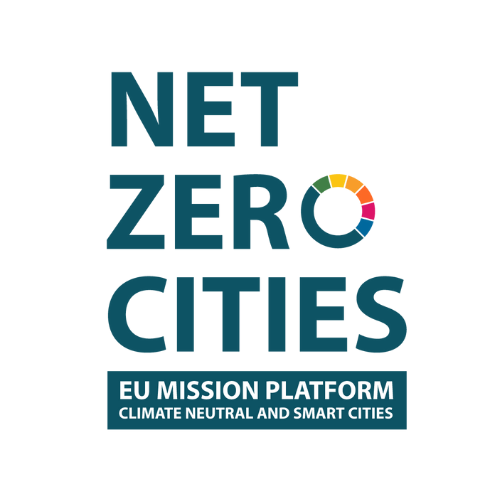
NetZeroCities (NZC) is part of the Horizon 2020 Research and Innovation Programme in support of European Union’s Green Deal. NZC has been designed to help cities overcome the current structural, institutional and cultural barriers they face in order to achieve climate neutrality by 2030.
NZC will support the EU’s Mission of “100 Climate-Neutral and Smart Cities by 2030” newly-launched as part of the Horizon Europe programme. The project will work as a service-oriented platform supported by world-class practitioners. It will help European cities by providing them with the support and solutions they need to achieve their Net Zero goal in a socially inclusive way.
New and existing tools, resources and expertise will be developed and promoted into a one-stop platform accessible to all cities through an online portal. Dedicated services will be designed to support cities that are part of the EU’s Mission “100 Climate-Neutral and Smart Cities by 2030”. In addition, NetZeroCities will support a series of Pilots to help drive rapid learning about how to achieve climate neutrality at city scale, an run a Twinning programme to enable peer-learning.
Austrian Institute of Technology together with NetZeroCities partners, provide harmonized standards and interfaces for data collection to achieve the much-needed alignment and integration of existing KPI frameworks and GHG reporting mechanisms in this project.
Speaker:
Ghazal Etminan, Senior Research Engineer & International Business Development, Digital Resilient Cities, Center for Energy, AIT Austrian Institute of Technology GmbH
